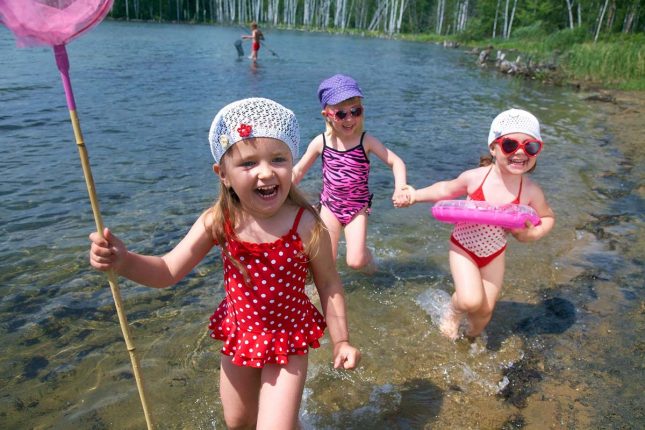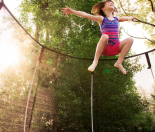Summer’s on the horizon – It’s time to think about water safety for kids.
Water is an essential part of Kiwis identity and many children grow up spending their holidays at the beach, fishing off the rocks, swimming in a pool or learning how to drive a boat. Yet according to Safekids Aotearoa, drowning is the third leading cause of injury-related death among children 19 and under.
Why learn-to-swim programmes teach essential skills to children
Karla McCaughan, Swim School Quality Services Manager for YMCA Auckland says, “teaching Kiwi kids about swimming and water safety is a cause very close to my heart.
“Most of the under-five drownings in New Zealand happen when children find water unattended. I truly believe that if we work collectively towards giving water safety the same priority as road safety, we can make a difference.
“We don’t allow kids to cross the road unattended or at their own command, so let’s teach our young ones they can only go in water when a grown up is with them and that they only go in water when an adult says they can.”
YMCA Auckland are passionate about making a difference. They realise that swimming lessons are not affordable to all families and in an effort to give more children the opportunity to learn these important life skills, they offer subsidised lessons to all under 5’s, at off peak times, at their four Auckland locations.
“At the end of the day, there is no better way to keep your child safe around water than through constant and vigilant supervision. But the benefits of participation in a good learn-to-swim programme are so valuable parents shift from an ‘I can’t afford this’ to a ‘can I afford not to?’ mentality around teaching these essential skills to children.”
Get in touch with your local YMCA to see how your family can become more confident and be safer in the water this summer, or visit www.myswimschool.co.nz for more information.
Karla shares her top 10 water safety tips for swimming safer this summer:
1. Constant Supervision
Make sure you actively supervise the children swimming at all times. It can take a matter of seconds for a child to get into trouble in water. Keep your eyes on them and if you can’t keep them within sight and within reach, have them stay out of the water until you’re able to go in with them. It can be a good idea to have a designated supervisor for parties and family events. Parents can sometimes become confused as to who is watching the kids so by making someone responsible we can ensure that all children are supervised at all times.
2. Teaching Hesitation
Teach your children that they are not allowed to play in, on or around water unless you are with them. 99% of drownings in this age group happen when children “find” water whilst unattended. Teach your children to ask themselves “Have I got an adult with me?”
3. Learn To Swim
Summer is almost here – make sure the kids and yourself are confident and competent in the water. Head to your local pool to practice and book the kids in to swim school lessons. Choose an AUSTSWIM Recognised Swim Centre or Swimming New Zealand Quality Swim School. These Swim Schools are guaranteed to deliver a programme that employs teachers with an industry recognised qualification. A good Swim School will deliver a programme that not only teaches swimming but basic water safety and survival skills also.
4. Education Is Key
Don’t scare your kids but make sure they are truly aware of the dangers of water. Have an open chat with your children about what they would do if they saw a friend struggling in the water. It is important that they know not to go in the water to try and rescue someone else. Talk about what items could be thrown to someone in difficulty to help them float, like a ball or a chilly bin lid. Make sure they know to tell an adult immediately.
5. Identifying Water Hazards Around The Home
Work as a family to identify all water hazards in and around your home. There are many items that may present a drowning threat. Things like buckets, even pet bowls, anything that can contain water. Always stay with children during bath time and minimise distractions like answering the phone. Empty the bath tub after use and keep all plugs out of reach.
6. Water toys are not a safety device
Never rely on water rings or inflatable toys for safety. Toys are great for having fun with when supervised swimming but will not protect your child from drowning. They must also be removed from the pool when not in use; this may help prevent a toddler accidentally falling in while trying to recover a toy.
7. Home Pool Safety
Make sure if you or your friends own a pool that it matches the safety standards and that it is safely fenced with securely lockable gates. Never leave anything that your child can climb on by the pool fence, ensure the gate swings back to closed after being opened and have a child proof latch. Always empty and store paddling pools after use.
8. Beach Safety
As soon as you get to the beach, look around and familiarise yourself with the swimming area. It’s also a great time to remind the kids of what is around them and even outline a ‘swim zone’ that they shouldn’t swim past or beyond. If it is a beach with red and yellow flags, make sure they only swim in that area. This is where the life guards patrol, and indicates the safest place to swim on that beach.
9. River Safety
If you are picnicking by a river or water hole be aware of the potential dangers. More people drown in rivers in NZ than anywhere else. The look of rivers can be deceptive with water often moving faster than it appears. Pick your swimming spot carefully and watch for hidden objects like logs and rocks.
10. Boating Safety
Children should wear life jackets at all times when on a boat, at the wharf or near any body of water. The life jacket must be the right size, tight fitting and worn correctly. Accompanying adults should wear life jackets, not only for their own protection but to set a good example.
About YMCA Auckland’s Swim Schools
YMCA Auckland offer swimming lessons from babies to adults, of all ages and abilities. Their classes have a huge focus on water safety, and facilitators work closely with AUSTSWIM Aoteoroa, SNZ and other industry professionals to continually update and improve their knowledge and techniques.
YMCA Swim Schools have been recognised recipients for a number of AUSTSWIM Aotearoa awards in 2015 and 2016. Awards include; Swim Centre of the Year, Teacher of Swimming and Water Safety, Teacher of Infant and Preschool and Presenter of the Year.
Visit www.myswimschool.co.nz for more information.
Sponsored post.






